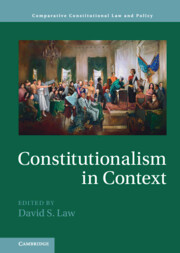Albert Chen
Published online on 17 February 2022
Summary: The ideas and practices of constitutions and constitutionalism were first imported into China in the late 19th century. There were three eras of constitution-making in modern Chinese history: the last decade of Qing imperial rule, the republican era, and the communist era. Dr Sun Yat-sen, founding father of the Republic of China (RoC), developed a three-stage theory of China’s political development in which the last stage was to be constitutionalism (xianzheng). Although this was realized in theory when the RoC Constitution of 1946 was enacted, the Constitution became largely suspended as the RoC regime moved to Taiwan and introduced martial law after its defeat by the Communists in the Chinese Civil War. The People’s Republic of China (PRC) was established in the Mainland, which witnessed a new era of constitution-making under the Soviet Union’s influence. However, even today, the discussion of “constitutionalism” (xianzheng) is still discouraged by the PRC regime, although the concepts of the (socialist) Rule of Law and human rights have been affirmed by constitutional amendments. This chapter will review and assess the history of constitution-making in modern China and the discourse of constitutional law scholarship in contemporary China, and it will explore how the case of China both illuminates and challenges conventional understandings of the meaning and significance of constitutions and constitutionalism in the contemporary world.

No comments:
Post a Comment